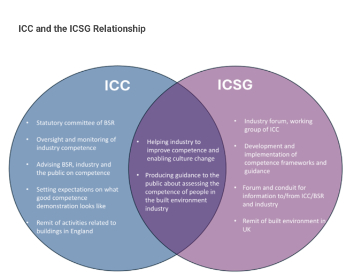Main author
Multiple Author ArticleTips for a new BREEAM assessor
Contents |
[edit] Pre-appointment
[edit] Good questions to ask
- Project’s particularities?
- What is the actual stage of the project? Timescale?
- Is a BREEAM AP appointed on the project?
- What is the client’s previous experience with BREEAM, do they understand the process and the role they play.
- What is the BREEAM level targeted? Is it achievable?
- Is BREEAM target a client’s choice or planning requirement?
- What meetings have already taken place? Are there minutes for these?
- What RIBA Stage are we at? Are the RIBA Stage sensitive credits still obtainable?
- Can all the mandatory credits be achieved?
- What steps must be priority?
[edit] Early stages
[edit] Applicable criteria
- Review the site location to see what credits are achieved by default i.e. Ecology, Flood Risk or Transport issues
- Always check for any building specific criteria
- Could this be a ‘Simple Building’?
[edit] Pre-Assessment
- A pre-assessment can be completed on BREEAM Projects.
- What is the desired timescale for completing the pre-assessment?
- If you are aiming for a target rating aim 5% higher than you need. This will help you avoid missing the targeted level because of pitfalls on your project
[edit] Briefing the client
- Make clear to the Team the type of evidential requirements and format
- Be specific and try to avoid quoting large part of the manual. Give similar examples from other projects (you are new so may need to be innovative or have a chat with more senior BREEAM assessor before the meeting)
[edit] Assessment scope
- Check what minimum standards will apply
- Which compliance notes could affect you getting the credits?
[edit] Assessment tools
- It is also possible to use Tracker Plus and IES Tap to create Pre-Assessments and gather evidence throughout the BREEAM assessment.
- Do not dismiss the available reporting tools such as IES TaP and Tracker+, some clients are fans
- Familiarise yourself with available tools and present to the client your opinion on which is the best but ultimately if client wants to use a particular one you should go with client’s selection.
[edit] Consultants
- Advise on early stage consultants that will be required i.e. ecologist, acoustician etc
[edit] Project info
- In order to start an assessment you will need to know the building type, scope of works and rating required
- Review what information is available
- and what stage the project is at to see if any early stage credits are achievable or have been missed
- What's driving the BREEAM assessment (e.g. planning requirement, client intent?)?
- Targeted BREEAM rating (e.g. Very Good, Excellent)
- Confirmation of current RIBA stage
- Budget of project.
- Project directory available listing all design team parties
- What's the type of contract (e.g traditional D&B)?
- Gross internal floor area confirmation.
- M&E design description.
- What is the sustainability approach? Has an LZC report been conducted? Is there an intent for use of renewables or any LZC technologies?
- Understand what has been designed in the scheme to date
- Understand the design and construction programme
[edit] Registration
[edit] During assessment
[edit] General advice
- Some project teams need more support, be proactive and prepare frequent updates but make it clear it’s not your job to win the credit for them
- Seek access to the owner of the building.
- You are an assessor not the AP (probably or in some cases), however it is expected of you to provide explanation or certain degree of support as you are the specialist! You have to be proactive if you want repeat business
- Competent communication with participants of the assessment
[edit] Report completion
[edit] Checklist
[edit] Evidence
- Be as flexible as possible in terms of receiving evidence but ensure they address all the necessary criteria clearly
- Site Inspection Report is the most valuable and robust type of evidence.
[edit] Referencing
[edit] Timescale
- Always check with your clients if they need the certificate by a certain date, you may need to apply for fast track
[edit] Personal qualities
- Be equipped with perseverance.
- Don’t pretend you know all the BREEAM Technical Requirements, nor to be an expert on each discipline (if any). Take time to understand the project and provide answers when you are clear.
- Patience
[edit] Resources
[edit] BREEAM Forum
- If unsure you can always use the Assessor Forum to consult the advice of other assessor’s, we are all always learning with every new project so never feel stupid to ask
[edit] Knowledge Base
- Always consult the Knowledge Base
- The Knowledge Base under BREEAM Projects is very useful source of information
[edit] BREEAM Project Management Tool
- A great tool for tracking your BREEAM projects/ credits is a cloud based tracker called IES TaP: More info can be found here - IES TaP Website
BRE Global does not endorse any of the content posted and use of the content will not guarantee the meeting of certification criteria.
--Multiple Author Article 16:28, 19 Apr 2018 (BST)
Featured articles and news
Twas the site before Christmas...
A rhyme for the industry and a thankyou to our supporters.
Plumbing and heating systems in schools
New apprentice pay rates coming into effect in the new year
Addressing the impact of recent national minimum wage changes.
EBSSA support for the new industry competence structure
The Engineering and Building Services Skills Authority, in working group 2.
Notes from BSRIA Sustainable Futures briefing
From carbon down to the all important customer: Redefining Retrofit for Net Zero Living.
Principal Designer: A New Opportunity for Architects
ACA launches a Principal Designer Register for architects.
A new government plan for housing and nature recovery
Exploring a new housing and infrastructure nature recovery framework.
Leveraging technology to enhance prospects for students
A case study on the significance of the Autodesk Revit certification.
Fundamental Review of Building Regulations Guidance
Announced during commons debate on the Grenfell Inquiry Phase 2 report.
CIAT responds to the updated National Planning Policy Framework
With key changes in the revised NPPF outlined.
Councils and communities highlighted for delivery of common-sense housing in planning overhaul
As government follows up with mandatory housing targets.
CIOB photographic competition final images revealed
Art of Building produces stunning images for another year.
HSE prosecutes company for putting workers at risk
Roofing company fined and its director sentenced.
Strategic restructure to transform industry competence
EBSSA becomes part of a new industry competence structure.
Major overhaul of planning committees proposed by government
Planning decisions set to be fast-tracked to tackle the housing crisis.
Industry Competence Steering Group restructure
ICSG transitions to the Industry Competence Committee (ICC) under the Building Safety Regulator (BSR).
Principal Contractor Competency Certification Scheme
CIOB PCCCS competence framework for Principal Contractors.
The CIAT Principal Designer register
Issues explained via a series of FAQs.

























